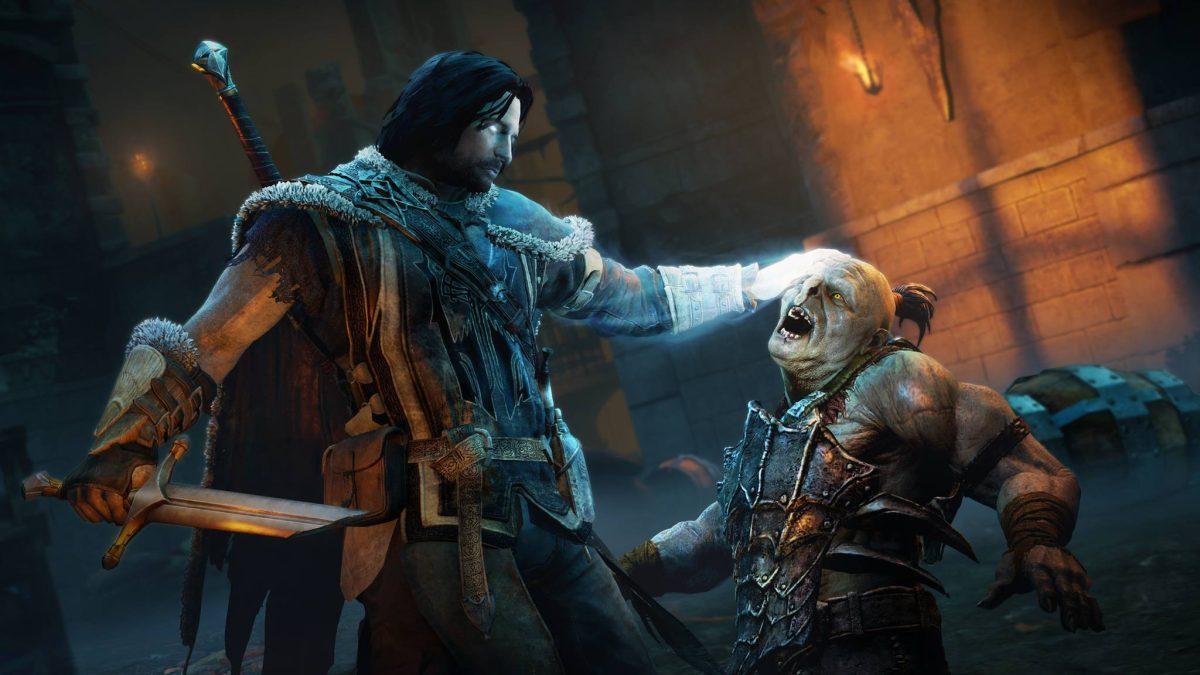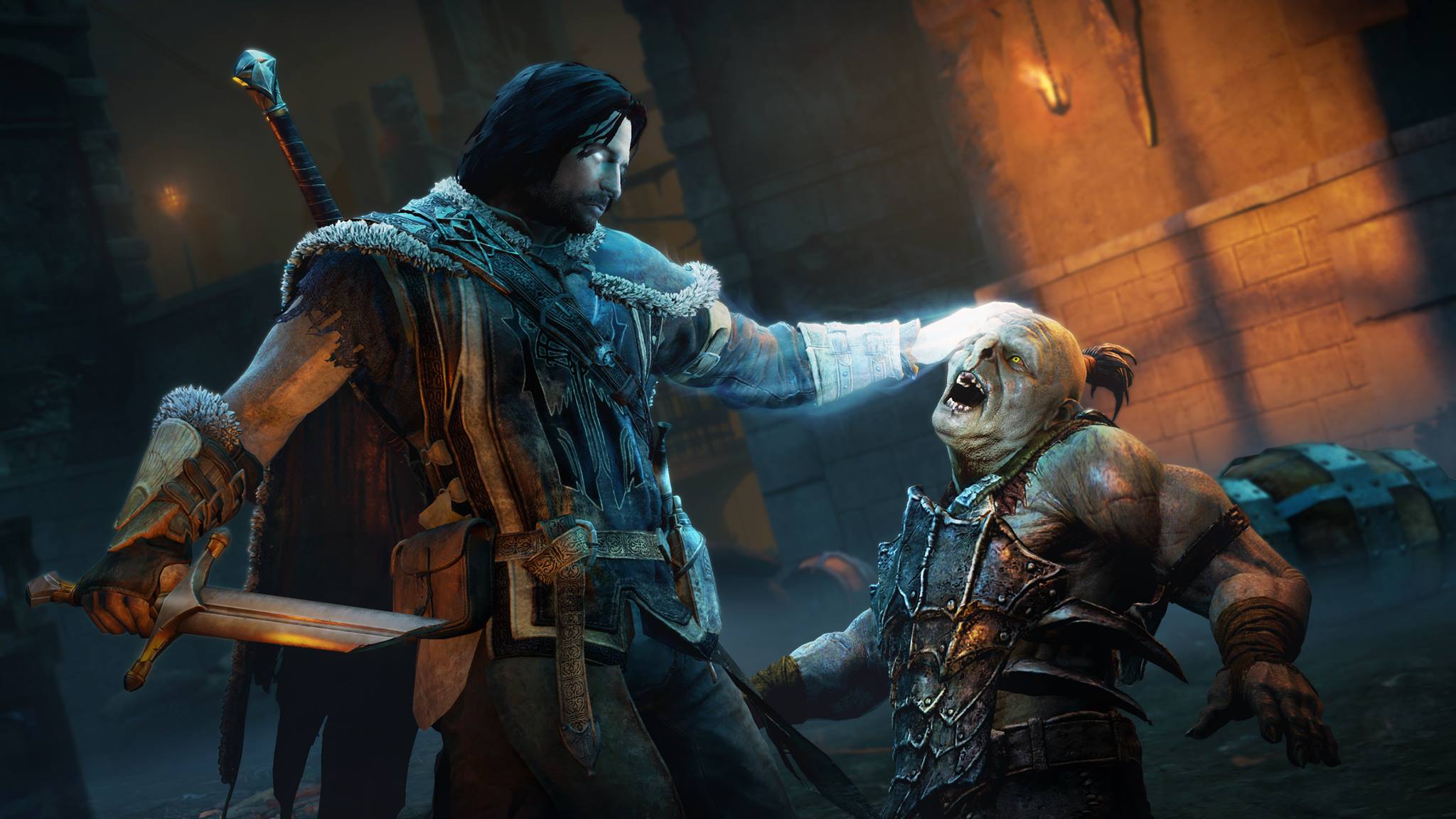There is something incredibly special about “Middle-earth: Shadow of Mordor.” Much like the “Batman: Arkham” games and the “Assassin’s Creed” series, one never doubts the fact that an individual could destroy as many enemies as one does throughout the game.
“Shadow of Mordor” has a lot of new innovations going for it and becomes increasingly fun over time. There isn’t a moment that makes one wish to go back a few chapters. “Shadow of Mordor” isn’t afraid to make one feel like a god in combat, and that feeling can instantly leave as one becomes more overwhelmed and faces certain death.
The story to “Shadow of Mordor,” sadly, may be the weakest aspect within the game. Players control Talion, a ranger, who dies along with his family and is bound to a wraith after death. Other than the compelling beginning, there aren’t any other parts of the story that sucks one in.
Ordinarily one would see this as a major downside to the game, but it can be overlooked thanks to the awesome gameplay. As one plays the game, he or she slowly gets the feeling it isn’t about the story. The developer, Monolith, is focusing on individuals creating their own memorable moments within Mordor.
The sandbox world is everyone’s to mold. One may be thinking, “Hey. Open-world. That sounds like ‘Destiny,’ the new Bungie game,” but this is wrong. Unlike “Destiny,” “Shadow of Mordor” succeeds in creating a world that one can lose themselves in.
The game has a ton of fun side characters that populate the world. Some familiar faces like Gollum, and some new ones like Ratbag, a snide little orc with big aspirations. However, the lead character Talion’s interactions with all of them are ridiculously boring, and take away from the otherwise promising characters.
He acts far too confused and emotionally distant in every situation, like a bad boyfriend who never returns phone calls. In fact, there were even a few times one wondered if Talion was even paying attention to his own actions. The story lacks heart and it’s definitely apparent, but there’s doubt the focus was ever on the story.
Like mentioned above, the game seems to focus on the new mechanics developed by Monolith, instead of the story. At the heart of these mechanics is “Shadow of Mordor’s” biggest strength, the Nemesis System.
The Nemesis System is Monolith’s crown jewel, basically, their Ark of the Covenant. This new feature is an incredible in-game system that brings life to the world and adds meaning to one’s decisions.
Here in Mordor, every Uruk (orc) has a name. For instance, in this reviewer’s game, there’s a dreaded legendary war chief named Mozú the Brain Damaged, as well a random grunt named Krímp who managed to climb the ranks of orc hierarchy.
Besides the fact every orc has a name, the Nemesis System shows the rank of every orc captain and war chief throughout Mordor. Each of these enemies has a unique and sometimes humorous name, his own strength and weakness, plus his power or influence over other orcs.
With all this information, one plans their attacks and tries to destroy the Dark Lord’s armies, one step at a time. With this clever system, every game and encounter feels unique and holds weight.
How are is one going to kill all these bad guys? With “Shadow of Mordor’s” wonderful combat system, which is one of the game’s biggest strengths.
It feels much like the “Batman: Arkham” series as one attacks and counters their way through many battles, slowly building a combo meter to deliver a satisfying, albeit a little gory, execution on an enemy. In fact, the game’s combat is so good, it passes “Batman’s” already established excellence.
That’s quite a compliment coming from someone who considers “Arkham City” as one of their favorite games of all time. Read here. The combat is slightly faster than previous games which had a similar system, and feels a little tighter while also being much more forgiving.
One can counter enemy attacks at any time, and this takes away that slight bit of rage that comes with the “I totally hit the counter button, I swear”-feeling most gamers get. Yet as good as all this is, “Shadow of Mordor’s” greatest attribute takes effect when one dies.
In most games, dying is quite simple. One dies, re-spawns and tries something different, and dies again. Basically one repeats this process until they’re successful. But within Mordor, things are quite different. When one dies, there is a certain penalty that goes along with a loss of life.
Since one has these strange wraith abilities, regeneration is justified; however once one dies, time progresses and the orcs of one’s Mordor interact in that progressed time. Orc captains may challenge each other and move through the ranks, new orcs will become captains and events will appear throughout Mordor.
This can really change the way players think about how to attack a certain captain. If/when a captain kills a player, he will get even stronger and beating him will become even harder of a task than the previous attempt.
While these new features in “Shadow of Mordor” are really the highlights of the game, deep down it’s the little details that make the latest Middle-earth adventure truly great.
As gameplay goes, things couldn’t be better. The combat is at the top of its game, but other gameplay mechanics are just as good. The parkour is wonderfully forgiving and scaling walls and hills comes with ease. One’s wraith abilities are wonderful and each new power makes one feel more and more like a medieval superhero.
The wraith ability that allows one to dominate beasts throughout Mordor really adds a nice strategy when facing a hoard of orcs. But it’s the actions throughout the environment that make each encounter so fun, whether one shoots open a cage to allow a beast to attack, drops a hive full of powerful insects upon enemies or shooting a fire causing it to explode and set enemies ablaze. These little details enhance the already splendid experience “Shadow of Mordor” has to offer.
“Middle-earth: Shadow of Mordor” is near perfect when it comes to gameplay and the game’s actual mechanics. But it relies on creating one’s own story through the Nemesis System rather than giving an actually compelling narrative.
The good thing about the Nemesis System is losing one’s self for hours trying to kill a target and moving different orcs up the rankings. The sad part of “Shadow of Mordor” is the vocal talent on the game, “The Last of Us’” Troy Baker and “Uncharted’s” Nolan North, added such promise to the narrative, but didn’t quite deliver.
Once one forgets about the story, a well-rounded world full of things to do and captains to slay is found. “Shadow of Mordor” isn’t just a good game, it’s one of the year’s best. Nine out of 10.
Jake Burke is a student at Sonoma State University who runs a video game blog. To view more of his work, visit amplifiedgaming.blogspot.com.





![[Both photos courtesy of sonoma.edu]
Ming-Ting Mike Lee stepped in as the new SSU president following Sakakis resignation in July 2022](https://sonomastatestar.com/wp-content/uploads/2024/04/CC4520AB-22A7-41B2-9F6F-2A2D5F76A28C-1200x1200.jpeg)



























